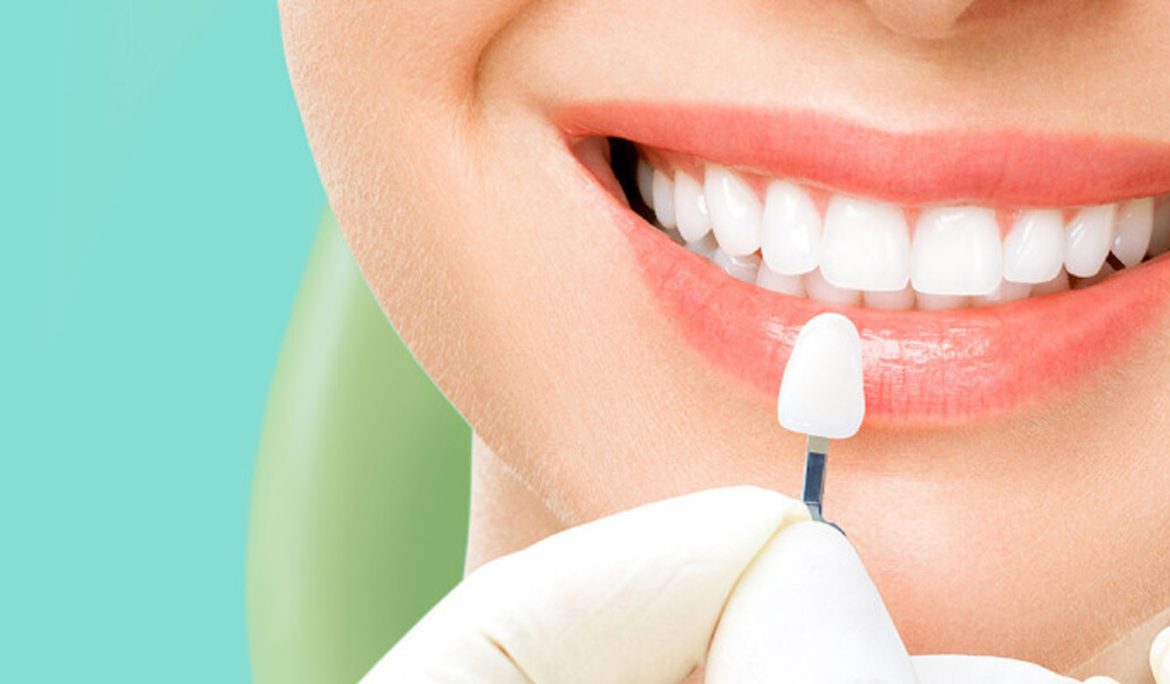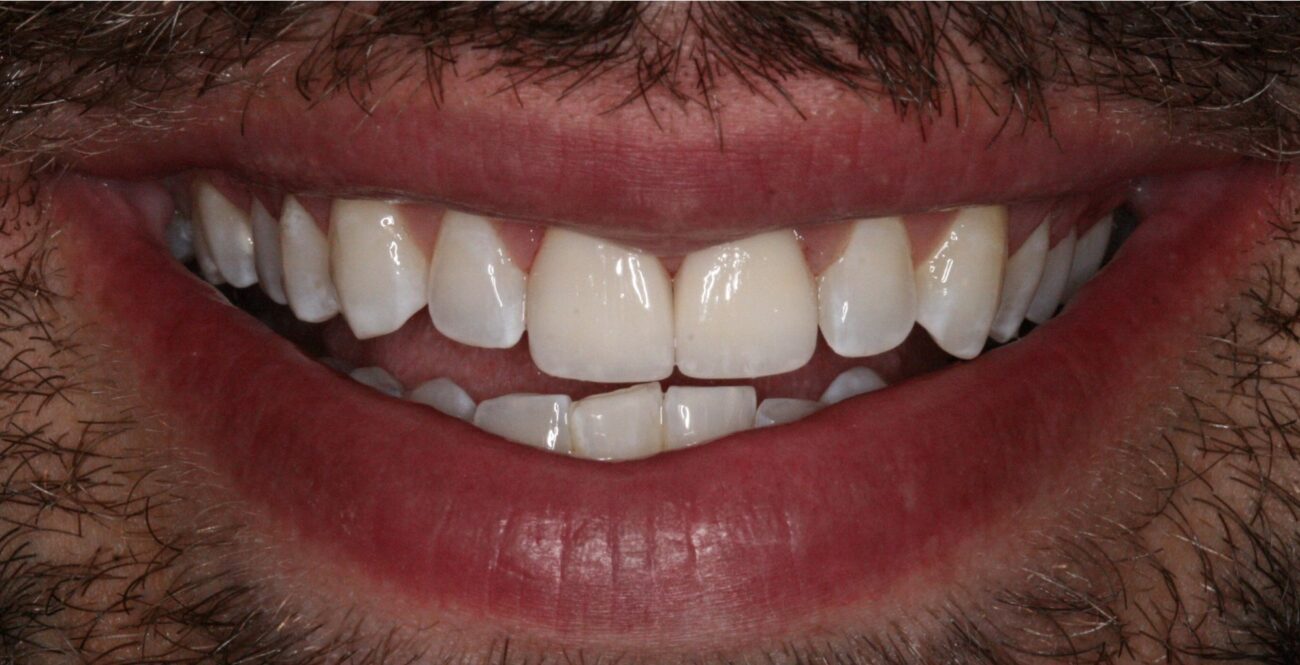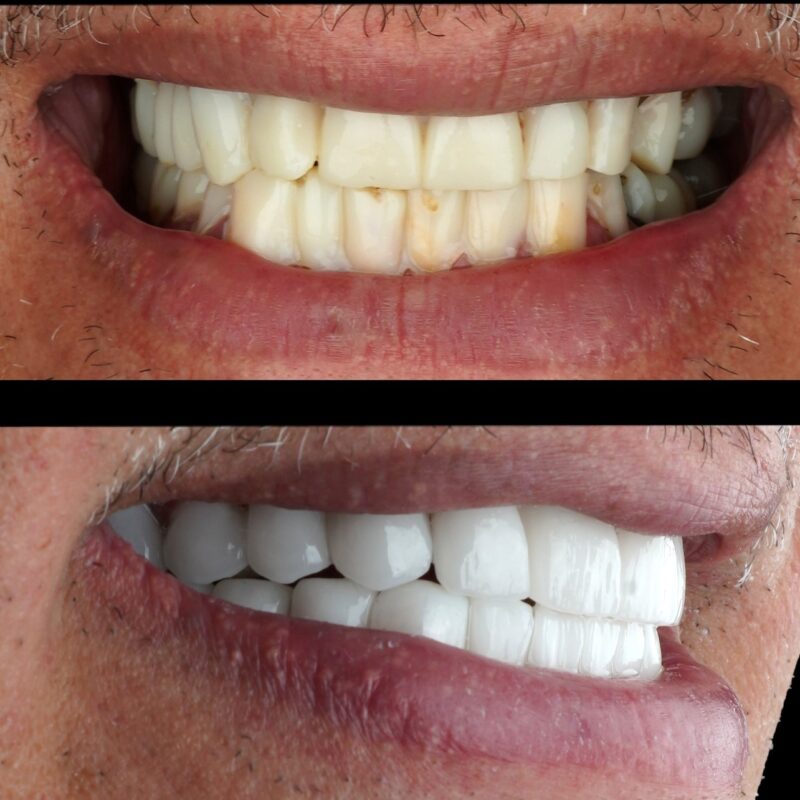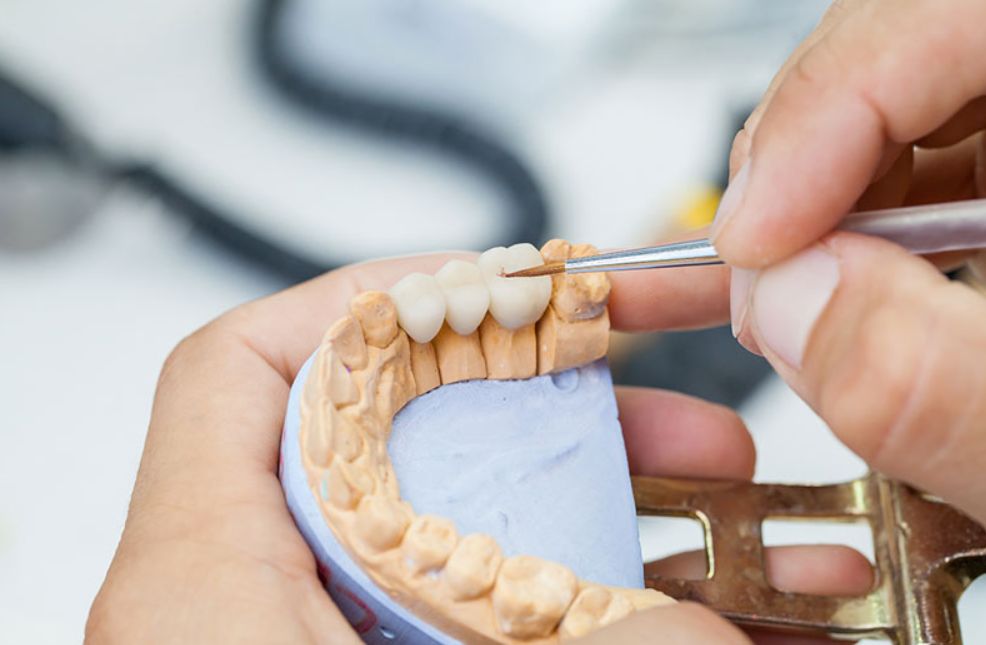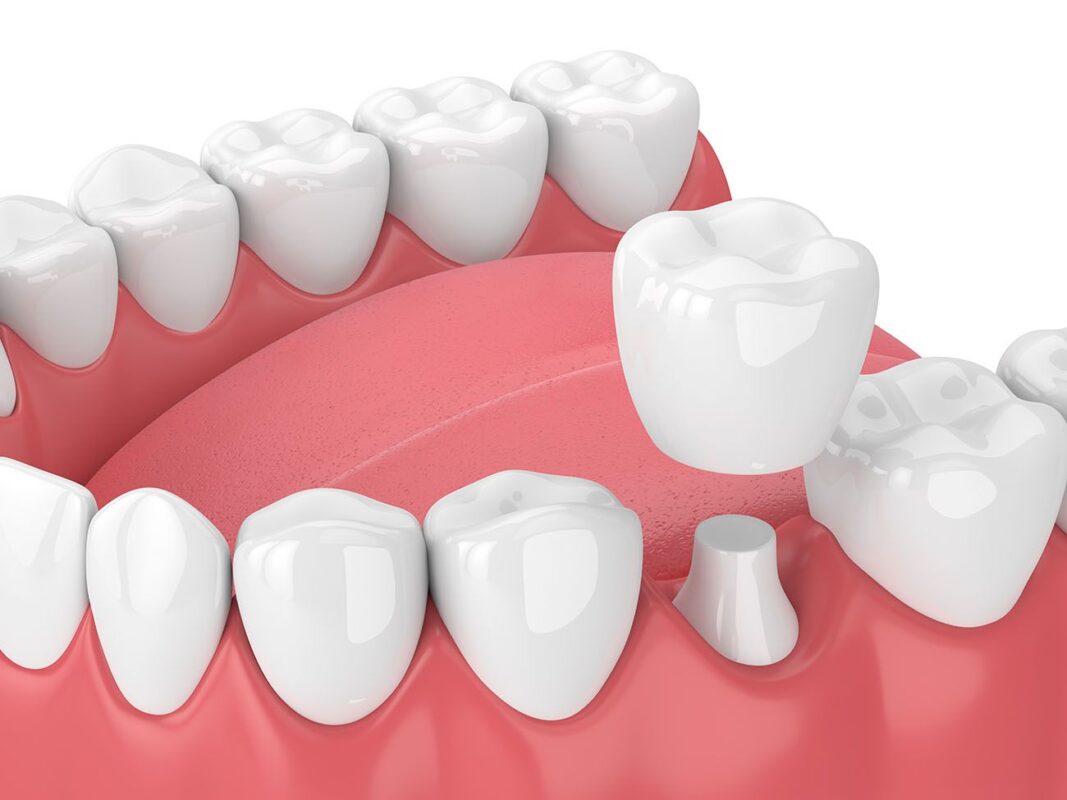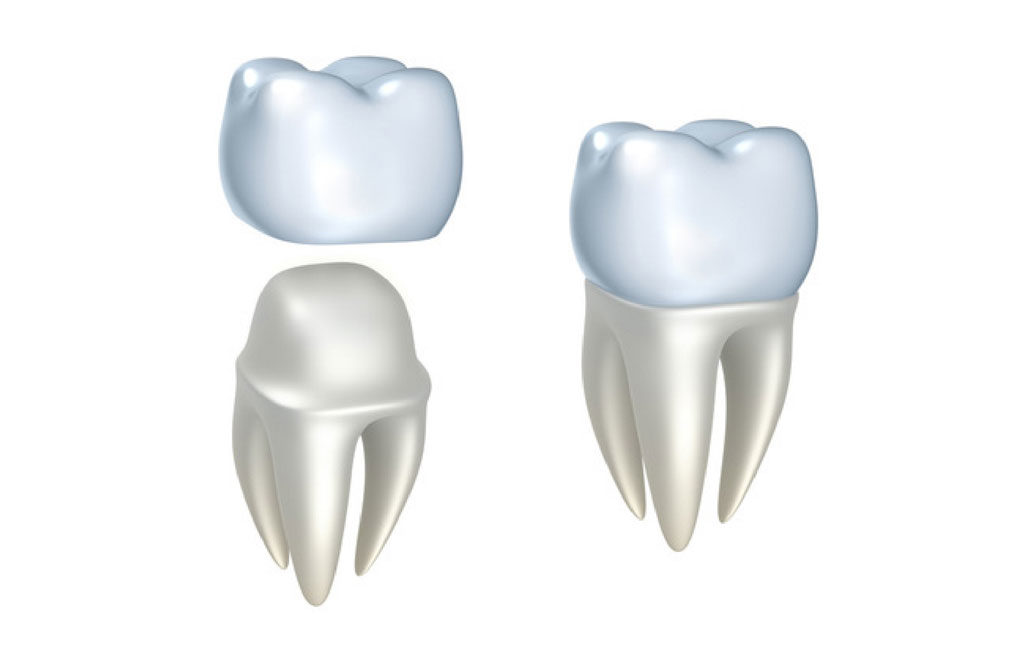Dental Crowns
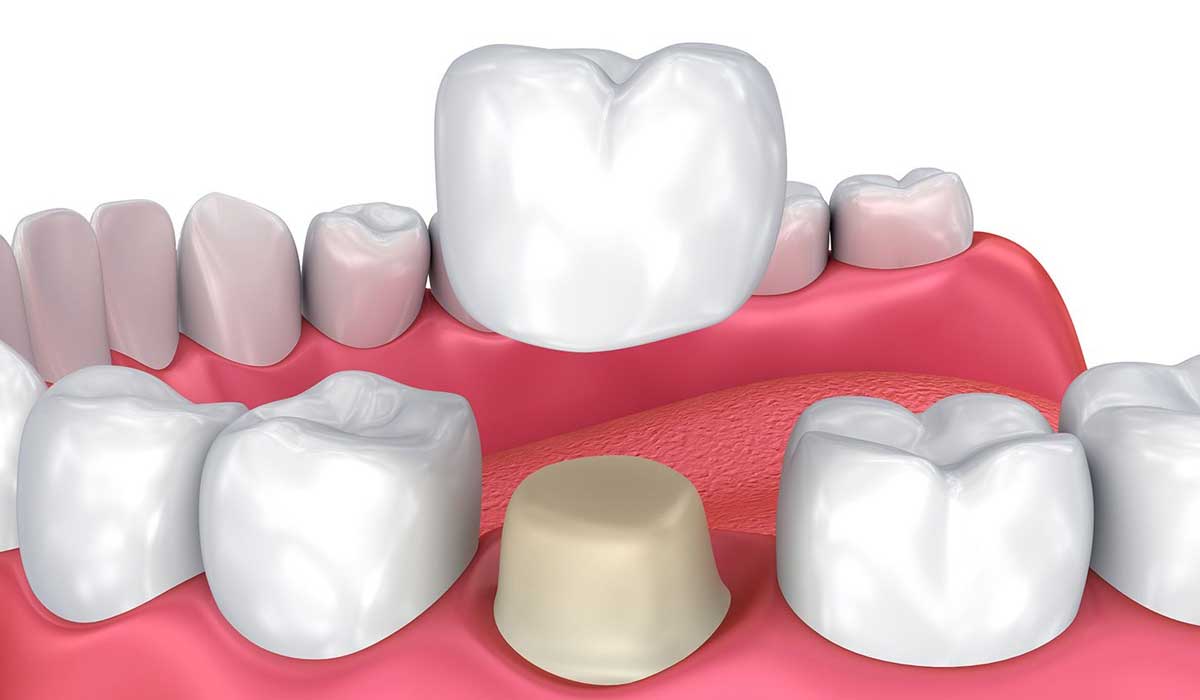
Dental Crowns is a medical and cosmetic procedure that aims to protect damaged teeth and improve their appearance. Whether you suffer from tooth fractures, tooth decay, or any other damage, dental crowns can provide an effective solution that restores the strength and natural shape of your teeth. This treatment involves placing a crown or cap that covers the visible part of the tooth, enhancing its durability and protecting it from further damage.
Dental crowns are not only about protection but also about improving the smile and making it more beautiful and attractive. Thanks to the advancement in dentistry, dental crowns are now available in different types of materials to meet the needs and preferences of each patient.
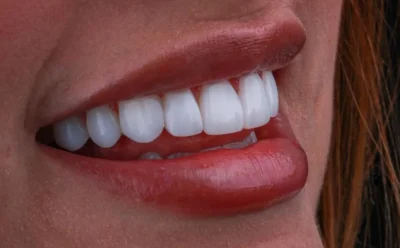
Types of Dental Crowns:
There are different types of materials used in making dental crowns, allowing individuals to choose what best suits their needs and natural appearance. Among these materials:
- Porcelain: It is used for front teeth crowns because of its natural appearance that resembles the color of the original teeth.
- Ceramics It has the ability to mimic the natural color of teeth, and is an excellent choice for front and back teeth crowns.
- zirconia: It is characterized by high strength and durability and is used in crowns of back teeth that need to withstand heavy chewing pressure.
- Metal: It provides superior durability and strength and is commonly used for back teeth that are not very visible.
- Composite resin It stands out for being cheaper, but it's less durable compared to other materials, and it's often used for temporary crowns.
- Dental crowns can also be made from a combination of these materials, such as a porcelain-fused-to-metal crown. These crowns provide a natural appearance as well as strength and durability. The material is often colored to match the color of natural teeth, making it a popular choice among doctors and patients for the perfect balance of aesthetics and function.

When Are Dental Crowns Necessary?
Dental crowns become essential in various situations to protect teeth and enhance their appearance. Among these cases are teeth damaged by deep decay or large fractures that can't be fixed with regular fillings. Crowns are also used to cover teeth that have undergone root canal treatments, as they provide extra protection for weak teeth. Additionally, crowns are an ideal option to improve the appearance of teeth that suffer from severe wear or stains that don't go away with traditional treatments, helping to restore the beauty of a smile and the patient's confidence.
Before Getting Dental Crowns:
Before performing the dental crown procedure, there are preparatory steps that must be taken to ensure the success of the procedure and avoid any complications. These steps include:
- Dental X-rays: The teeth are taken with X-rays, and a panoramic image may be needed to diagnose any problems with the tooth and determine the appropriate treatment.
- Taking antibiotics: The doctor may prescribe some antibiotics for people who are more susceptible to heart valve infections, in order to avoid any complications after the operation.
- Blood tests: Some blood tests are done for people with blood clotting disorders, to ensure that they are in a suitable condition to undergo the operation without health risks.
These preparatory measures help reduce risks and ensure the best possible results from the dental crown procedure.

During the Dental Crown Procedure:
When the dentist begins the crowning process, the dentist will file down the top layer of the tooth to make it pointy, making it suitable for receiving the new crown. Sometimes, the dentist will also file down the opposing tooth to ensure the optimal bite, which makes chewing easier. The dentist will then take an accurate mold of the prepared tooth to accurately measure the size and shape. This mold is then used to make the perfect crown that fits perfectly on the prepared tooth.
The dentist places a temporary crown made of stainless steel on the prepared tooth. This temporary crown is left on the tooth for about two weeks, which helps relieve tooth sensitivity and keeps it in place until the permanent crown is prepared. During this time, the patient should monitor the fit of the temporary crown and report any problems to the dentist.

After Getting Dental Crowns:
After the dental crown procedure, there are some procedures and tips that are recommended to be followed to ensure a quick recovery and maintain dental health. Here are the most important of these tips:
- Good oral hygiene should be maintained by brushing and flossing daily, as well as using dental floss and mouthwash to ensure thorough cleaning.
- The patient may feel some pain and swelling in the treated area, so he can use painkillers as needed to relieve the pain.
- It is necessary to avoid eating or drinking for two hours after the operation and until the effect of the anesthesia wears off to ensure that no complications occur.
- Your doctor may recommend rinsing your mouth with salt water to help prevent bleeding and promote tissue healing.
- If there is inflammation or infection in the area, your doctor may prescribe antibiotics to help fight the infection and speed up the healing process.
By following these guidelines, the patient can maintain oral and dental health and ensure the complete success of the dental crown process.

Finally:
Dental crowns are a necessary and effective procedure to improve the health and appearance of your teeth, giving you an attractive smile and increased confidence. By following the necessary post-operative instructions, such as maintaining oral hygiene, managing pain properly, and adhering to your dentist’s instructions, you can ensure the success of your dental crown procedure and enjoy its results for as long as possible. Always remember that good dental care and continuous communication with your dentist are the key to maintaining oral health and the safety of your dental crowns.
Please enter your data correctly
We will contact you as soon as possible.


